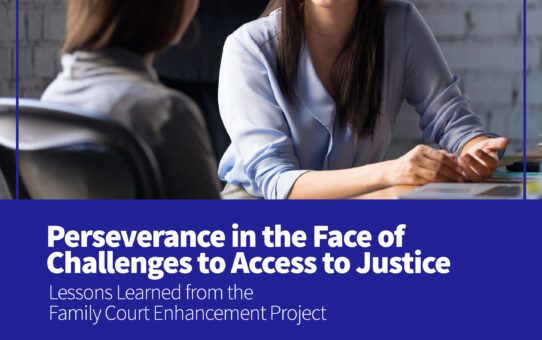Perseverance in the Face of Challenges to Access to Justice
A commitment to improve litigants’ access to justice emerged as a goal for all four FCEP sites. In seeking to improve the system, the teams at each site anticipated some challenges and were surprised by others. Here, we tell the story of challenges that confronted the sites and how they met and overcame them to increase access to justice for domestic violence survivors in their courts.
Read More





